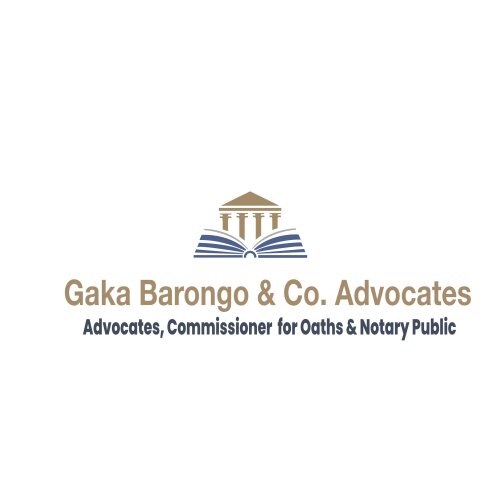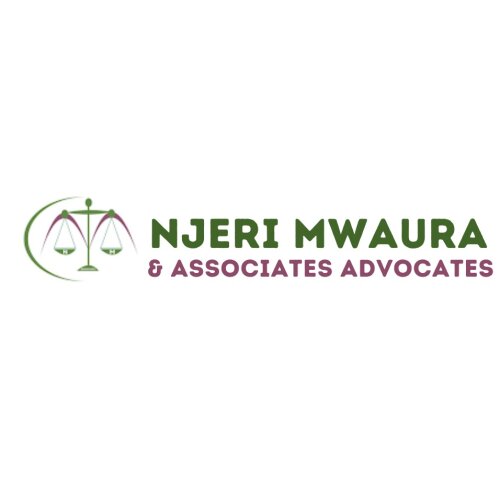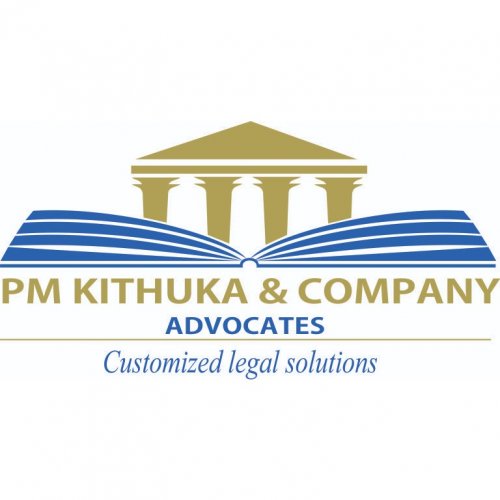Best Due Diligence Lawyers in Kenya
Share your needs with us, get contacted by law firms.
Free. Takes 2 min.
Or refine your search by selecting a city:
List of the best lawyers in Kenya
Legal guides written by Adroit Law LLP:
- Kenya Launches Digital Nomad Visa: A Gateway for Remote Workers
- Navigating the Payment System License Maze in Kenya
- Navigating the Complexities of Mining Licenses and Permits in Kenya: A Look into Artisanal and Large-Scale Operations
About Due Diligence Law in Kenya
Due diligence in Kenya refers to a series of investigations conducted to evaluate the risks involved in a business transaction or investment. It is a comprehensive appraisal executed by potential investors or buyers to understand what they are dealing with entirely. This legal concept spans multiple sectors, including real estate, mergers and acquisitions, and investment projects. Due diligence ensures that all pertinent facts and financial information are up-to-date and verified, which helps parties make informed decisions in line with Kenya's legal framework.
Why You May Need a Lawyer
Engaging a lawyer for due diligence processes is crucial in several situations. Primarily, a lawyer can help ensure compliance with relevant legal obligations, particularly when entering commercial contracts or acquiring property. They can thoroughly scrutinize legal documents to uncover hidden liabilities or risks. Lawyers are also essential when dealing with regulatory bodies or navigating complex transactions such as mergers and acquisitions. Seeking legal advice protects your interests and ensures all transactions are conducted lawfully and ethically.
Local Laws Overview
Key local laws pertaining to due diligence in Kenya include regulations from the Companies Act, the Land Act, and the Capital Markets Authority guidelines. The Companies Act outlines processes for corporate transactions, including mergers and acquisitions. The Land Act governs real estate transactions, ensuring property ownership and transfers comply with legal requirements. The Capital Markets Authority regulates securities and investment transactions, providing a framework for due diligence in financial markets. Familiarity with these laws is essential for effective and lawful due diligence practices.
Frequently Asked Questions
What is the due diligence process in Kenya?
The due diligence process in Kenya includes verifying information about assets, examining financial records, and assessing legal and compliance risks. It often involves inspections, interviews, and reviewing various documents, such as title deeds and financial statements.
How long does due diligence take in Kenya?
Due diligence duration varies depending on the complexity of the transaction. Typically, for simple transactions, it may take a few weeks, whereas more intricate deals, such as corporate mergers, may extend over several months.
Who conducts due diligence?
Due diligence is typically conducted by legal professionals, financial auditors, and industry experts. Engaging specialists helps ensure thorough and accurate assessment processes are followed to mitigate risks.
Is due diligence mandatory for all transactions?
While not legally mandated for all transactions, due diligence is recommended for significant investments, mergers, and acquisitions to fully understand potential risks and obligations.
Can due diligence be outsourced?
Yes, firms often outsource due diligence to legal and financial experts, enabling access to experienced professionals who specialize in thorough risk assessment and compliance evaluation.
What are the costs associated with due diligence?
Costs can vary based on the transaction's size, nature, and complexity. It's crucial to discuss fees upfront with service providers to understand the financial implications.
What happens if due diligence uncovers issues?
Should issues arise during due diligence, parties may renegotiate terms, address identified risks, or in some cases, opt to withdraw from the transaction altogether.
How does due diligence impact mergers and acquisitions?
Due diligence is pivotal in mergers and acquisitions; it evaluates the financial, legal, and operational aspects, aiding in achieving fair valuation and uncovering potential liabilities.
What role do regulatory bodies play in due diligence?
Regulatory bodies ensure that due diligence processes comply with legal mandates and standards, particularly in sectors like financial services, where risk assessment is crucial.
Can due diligence be conducted after signing an agreement?
While ideally conducted beforehand, due diligence can be part of a post-signing phase through clauses that allow transaction adjustments based on findings.
Additional Resources
For further guidance on due diligence, consider the following resources:
- Kenya Law: Provides access to legal statutes and resources beneficial for understanding the regulatory framework.
- The Law Society of Kenya: Offers directories for legal professionals who can assist with due diligence.
- Capital Markets Authority: Provides guidelines on due diligence for financial transactions and investments.
- Ministry of Lands and Physical Planning: Useful for property due diligence, offering access to land registries and title information.
Next Steps
If you require legal assistance with due diligence, consider the following steps:
- Research and identify experienced legal professionals who specialize in due diligence within your sector.
- Schedule consultations to discuss your specific needs and understand the scope of services offered.
- Request and negotiate engagement terms, including fees and timelines.
- Ensure clear communication and regular updates throughout the due diligence process.
Remember, effective due diligence can safeguard your interests and contribute to successful and compliant business transactions in Kenya.
Lawzana helps you find the best lawyers and law firms in Kenya through a curated and pre-screened list of qualified legal professionals. Our platform offers rankings and detailed profiles of attorneys and law firms, allowing you to compare based on practice areas, including Due Diligence, experience, and client feedback.
Each profile includes a description of the firm's areas of practice, client reviews, team members and partners, year of establishment, spoken languages, office locations, contact information, social media presence, and any published articles or resources. Most firms on our platform speak English and are experienced in both local and international legal matters.
Get a quote from top-rated law firms in Kenya — quickly, securely, and without unnecessary hassle.
Disclaimer:
The information provided on this page is for general informational purposes only and does not constitute legal advice. While we strive to ensure the accuracy and relevance of the content, legal information may change over time, and interpretations of the law can vary. You should always consult with a qualified legal professional for advice specific to your situation.
We disclaim all liability for actions taken or not taken based on the content of this page. If you believe any information is incorrect or outdated, please contact us, and we will review and update it where appropriate.
Browse due diligence law firms by city in Kenya
Refine your search by selecting a city.

















